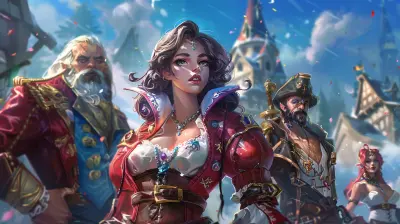From Peasant to King: The Journey of Power in Fantasy Games
10 August 2025
Let’s be honest—there’s something truly magical about starting from nothing and rising to become the ruler of everything. It’s the classic underdog story, the rags-to-riches adventure that has fueled countless fantasy tales and, more importantly for us gamers, some of the most compelling video game experiences ever created.
Fantasy games give us the stage to live out that dream. You begin as a humble peasant—dirt under your nails, a stick for a sword, and barely enough silver to buy bread—and somehow, through grit, skill, and a little luck (okay, maybe a LOT of luck), you climb the ladder of destiny all the way to the top.
So, how does this humble-to-hero journey capture our hearts? Why do we, time and time again, choose to start at the very bottom just to fight, struggle, and survive our way to absolute power? Grab your virtual sword, my friend—we’re diving into the pixelated trenches of fantasy greatness.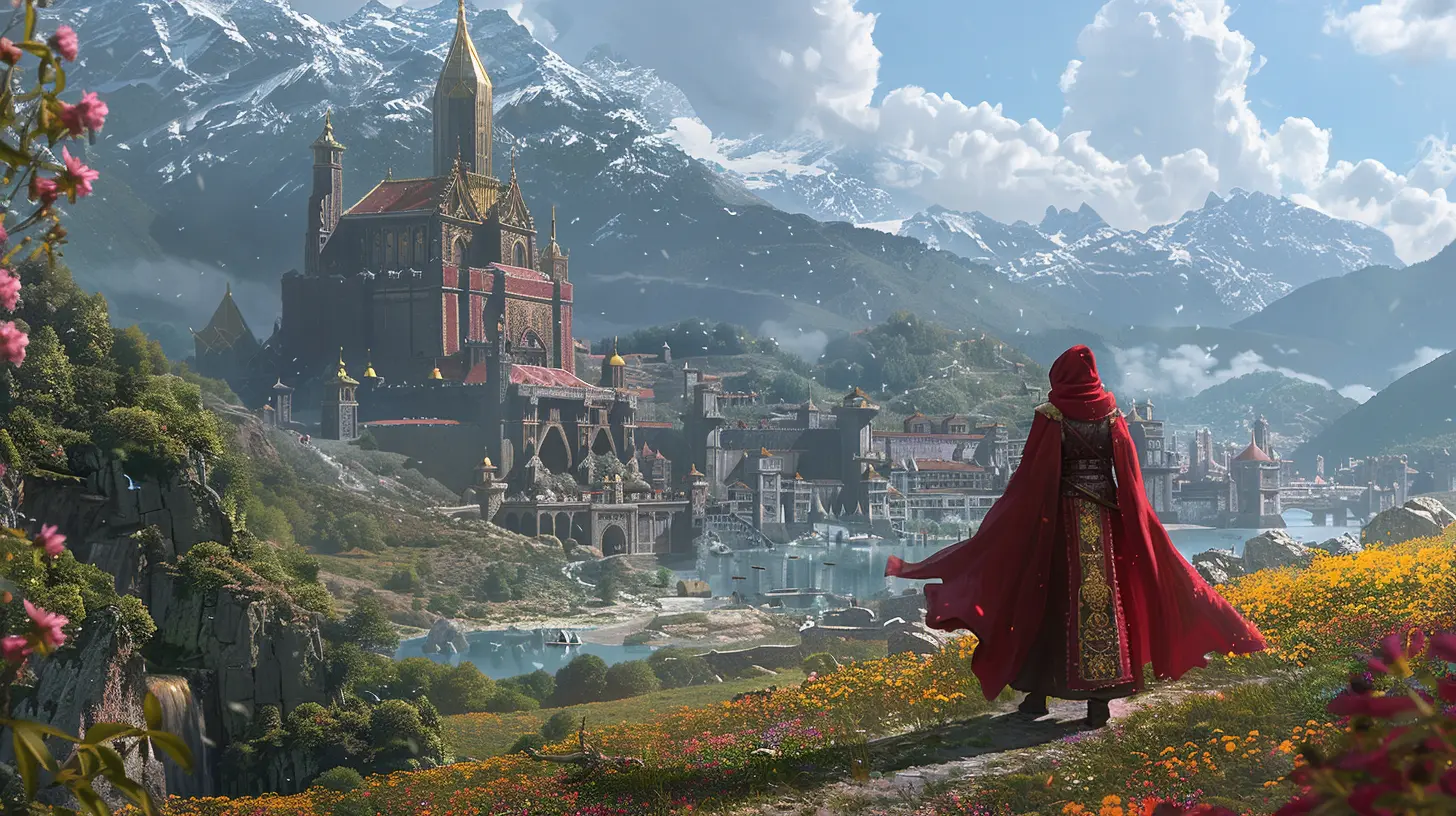
The Powerful Allure of Starting Small
Think about it: Would ruling a kingdom feel as satisfying if the game just handed it to you from the beginning? Probably not.Starting as a lowly nobody makes every win feel earned. You’re not just given power—you build it, piece by piece. Whether it’s chopping wood to craft your first spear, slaying rats in a tavern basement, or doing odd jobs for suspicious villagers, every little task contributes to that epic rise.
This journey mirrors life more than we give it credit for. We all start somewhere, usually not at the top. And fantasy games let us live that story where effort always pays off.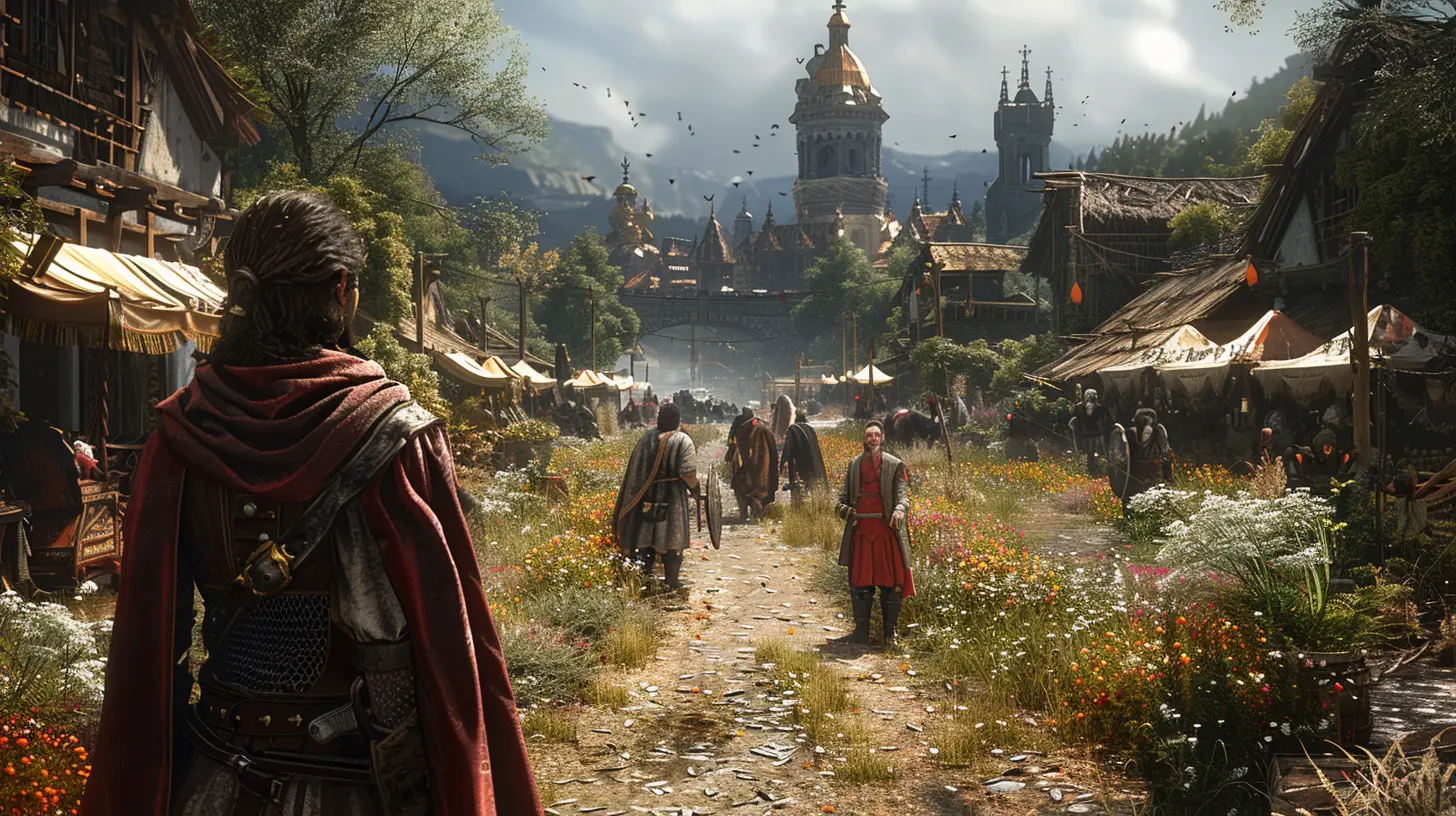
Step 1: The Humble Beginnings – Embrace the Dirt
Remember your first RPG? You probably had the crappiest gear, no money, and a basic attack that felt like tickling enemies with a feather. But here’s the thing—that's what makes the journey fun.This early stage teaches you patience, strategy, and humility. You learn to pick your battles, conserve your potions, and run from anything that growls too loud. You're not slaying dragons yet, but you're laying the groundwork.
Pro Tip: In most games, those early fetch quests and low-tier mobs are secretly leveling you up in ways you don’t even notice. Don’t knock ‘em—they’re your rite of passage.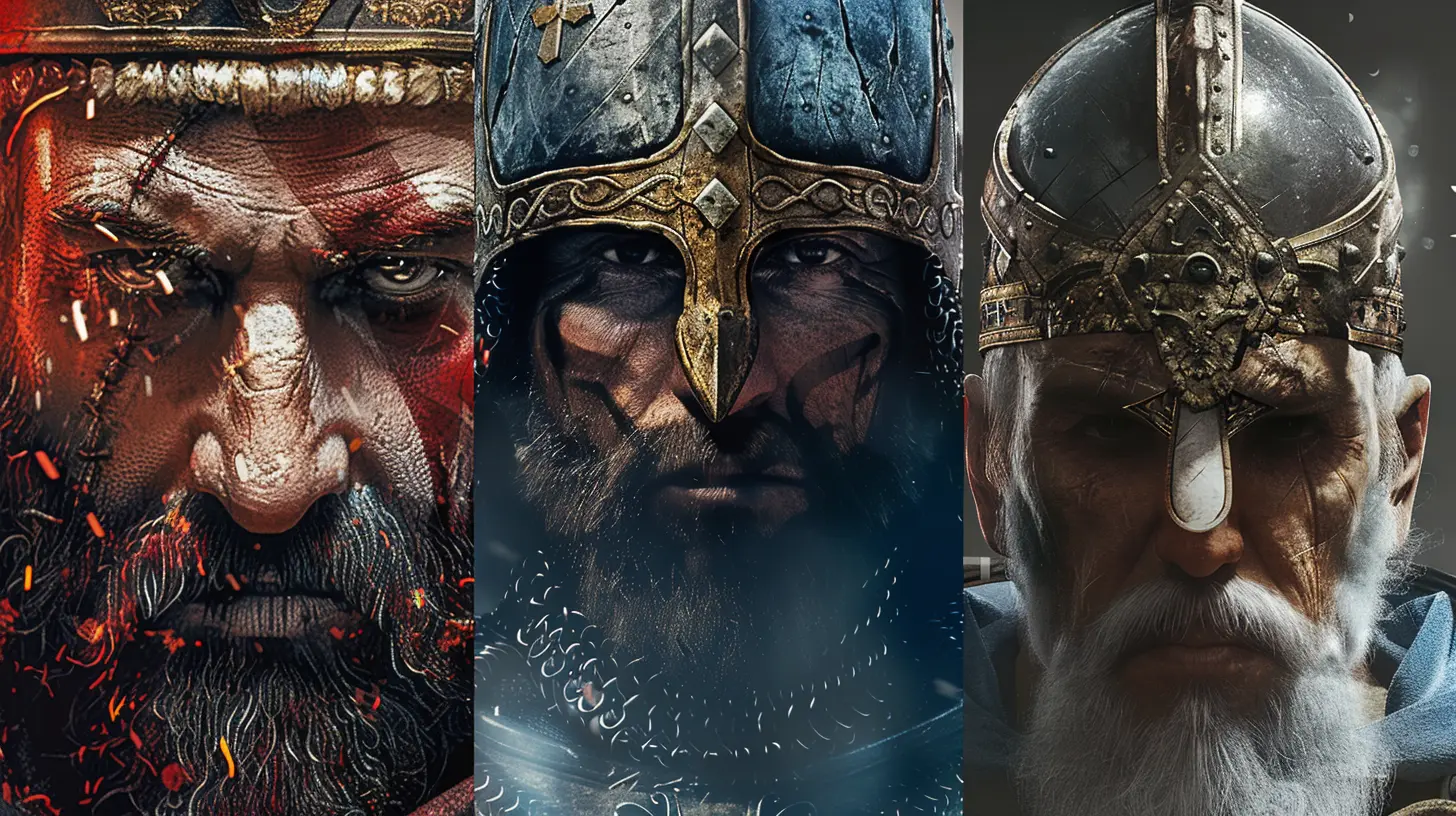
Step 2: Gathering Allies – Because Even Kings Need Friends
No king rules alone. Whether you meet them in a dusty tavern or rescue them from a goblin den, your companions are key to your rise. They bring skills you lack, offer new strategies, and sometimes even save your sorry butt in a close fight.Games like Dragon Age, Skyrim, and Divinity: Original Sin make companions more than just sidekicks—they're part of your story, your chosen family.
And let’s not forget how much more epic it feels when you pull off a combo attack or a perfectly timed spell with your party. It's like a fantasy version of a rock band, and you're the lead guitarist.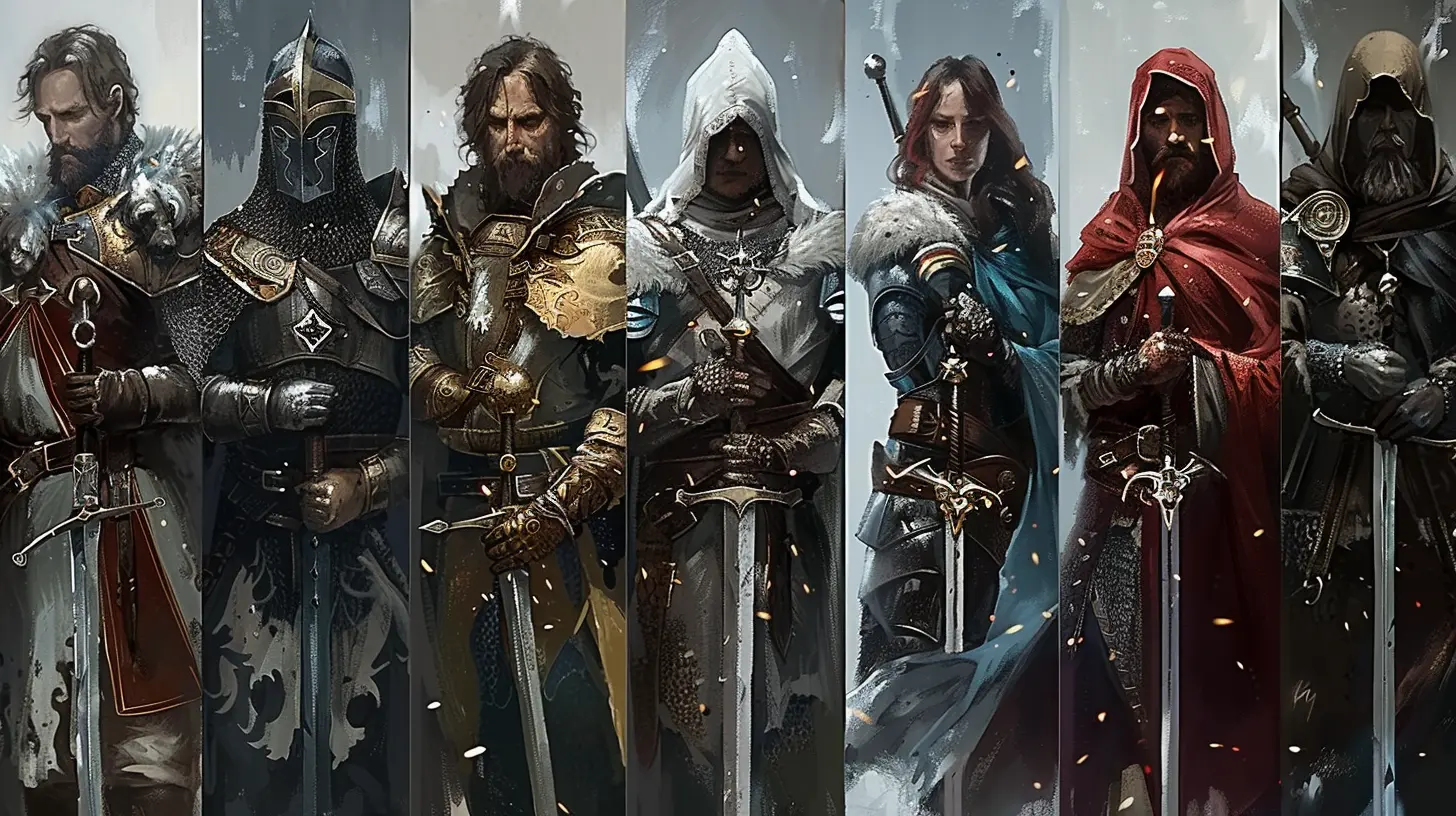
Step 3: Facing the Trials – The Fire that Forges the King
This is where the grind gets real.You’ve got better gear, a stronger party, and maybe even a small village cheering you on. But now the enemies are tougher, the dungeons darker, and the stakes higher. The monsters you once ran from? Now they’re just warm-ups.
These middle stages in a fantasy game test your limits. You’re no longer the helpless peasant, but you’re not invincible either. Every boss fight, every risky decision, shapes your legend.
Real Talk: This is often where casual players drop off. But if you can push through—if you can fight smarter, grind harder, and outthink the game—you’re well on your way to royalty.
Step 4: Building a Legacy – Castles, Crowns, and Choices
Now we’re talking power.By this point, you’ve probably acquired land, titles, or maybe even a throne. You’re looked up to (or feared), and your choices start affecting entire regions. Welcome to the big leagues.
Games like Fable, Mount & Blade, and Kingdom Come: Deliverance allow you to shape economies, lead armies, and decide the fate of thousands. It’s not just about killing stuff anymore—it’s about leading.
And here comes the twist: Power isn’t always easy.
At the top, you’ve got to make tough calls. Who lives? Who dies? Do you rule by fear or kindness? The journey from peasant to king isn’t just physical—it’s moral and emotional too. And didn't we mention? Heavy lies the head that wears the crown.
Why We Love the Rise – It’s Our Digital Hero’s Journey
Fantasy games don’t just let us play—they let us grow.That journey from powerless to powerful is deeply satisfying because it echoes the challenges we face in real life. We start jobs with no experience, chase impossible dreams with empty pockets, and often get knocked down more than we’d like.
But in fantasy games? We get to win.
We get to see our efforts pay off. We get to go from sleeping in straw huts to commanding armies from golden thrones.
It’s validation. It’s hope. It’s the story we all want to live—told in monsters, magic, and menus.
Memorable Examples of Peasant-To-King Stories
To really drive this home, let’s name-drop a few games that let you live out this epic rise:- Skyrim: You start as a prisoner—literally a nobody. A few dragon shouts later, you're the Dragonborn, a hero of legend.
- The Witcher 3: Geralt isn’t royalty, but his journey from a lone wolf to a political influencer in multiple kingdoms? King-level power.
- Fable: From childhood to hero to monarch, your choices shape your rise dramatically.
- Kingdom Come: Deliverance: You begin as the son of a blacksmith, and through bloody hard work and smarts, you rise to affect the fate of Bohemia.
- Mount & Blade II: Bannerlord: Absolute peasant beginnings. You can end up founding your own kingdom and ruling all of Calradia.
These games aren't just fun—they're inspirational. They remind us that greatness is earned, and every king was once just a scared kid with a wooden sword.
Moving Forward – Bringing That Energy to Real Life
Now here’s the kicker—what if we treated real life like a fantasy game?Maybe you’re not slaying orcs, but you are fighting deadlines. You’re not forging swords, but you are building skills. That promotion? That startup? That bold leap? That's your endgame quest.
When your real-life energy feels low, think about those fantasy journeys. Think about how every legendary king started in the mud, with nothing but a dream. You’ve got the stats. You’ve got the grind. You've got the heart.
All that’s left? Take the first step.
Final Thoughts: Your Throne Awaits
Fantasy games are more than just a good time. They’re a celebration of potential.They show us that no beginning is too small, no dream too big. They challenge us, reward us, and, most importantly, remind us that power isn't something you're born into—it’s something you earn.
From peasant to king, the journey may be long, but every moment is worth it. So whether you're swinging a pixelated axe or clicking through dialogue trees, remember: your throne isn’t given... it’s taken.
Your kingdom awaits, my liege. Ready your sword.
all images in this post were generated using AI tools
Category:
Fantasy GamesAuthor:

Stephanie Abbott
Discussion
rate this article
2 comments
Garrett Lynch
What a fascinating exploration of power dynamics in fantasy games! Your insights into the journey from peasant to king are both engaging and thought-provoking. Great read!
December 29, 2025 at 6:02 PM

Stephanie Abbott
Thank you so much for your kind words! I'm glad you found the exploration of power dynamics engaging. Your feedback means a lot!
Uzi Henson
Exploring character progression enhances immersion; it's fascinating to see how players embrace their journey from humble beginnings to royalty.
August 29, 2025 at 3:30 AM

Stephanie Abbott
Thank you! I'm glad you found the exploration of character progression compelling. It truly transforms the gaming experience, allowing players to connect deeply with their characters' journeys.

